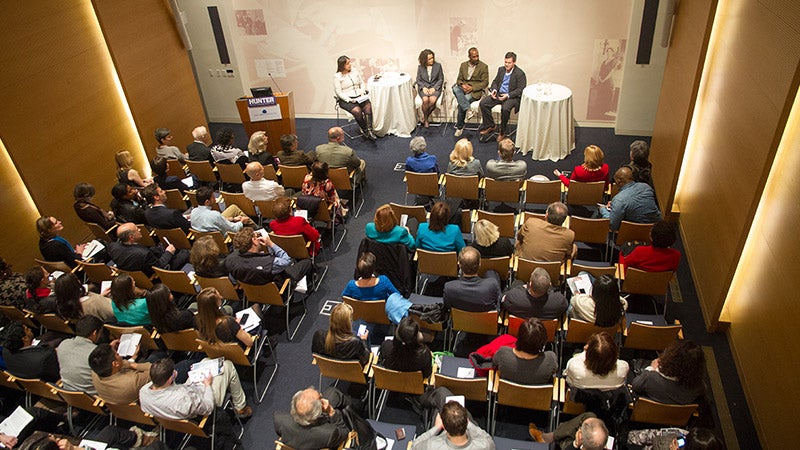The Aspen Institute Business and Society Program recently launched a new series focusing on the innovation economy — in particular, how to succeed in the new business and social environment of the 21st century. The first of the events, “Social Intrapreneurship: Keeping Your Day Job and Finding Meaning in Your Work,” gathered members of the program’s First Movers Fellowship to discuss, among other things, how to align business with the long-term health of society.
The fellowship is geared toward exceptional innovators in business who are creating new products, services, and management practices that achieve greater profitability and positive social and environmental impacts. By May 2014, 89 Fellows from 73 companies headquartered in 17 countries will have graduated from the program.
Moderator Heidi Moore, US finance and economics editor at The Guardian, asked each panelist to explain their role as an intrapreneur — someone taking on change from the inside of an already established corporation. First Mover Fellow and Director of Foresight in PepsiCo Inc.’s Global Beverage Group Manoj Fenelon suggested his role at Pepsico is one of a futurist. “My job is to give people in the company a picture of our changing world and help them think about it, not as a crisis, but more as an opportunity,” he said.
Fellow John Renehan, strategic initiatives manager at GE Power and Water, said he sees himself as “like being a coach — whether that’s of my immediate team, executives, other employees, or even outside of GE. It’s about how you lead change and how we can identify a problem and work together to solve it.”
While sharing their own intrapreneurship insights — including how they made the case internally to join the First Movers program — the Fellows discussed the importance of being personally engaged in your work in order to find meaning. They suggested that to do this, you must identify what you really want to do and find ways to integrate your passions into your role. They agreed that when organizations support their employees in discovering their passion, workers become more productive and feel less like “cogs in the machine.” Fenelon cited the successes of a program modeled after the Peace Corps called Pepsi Corps, which is a fellowship program that gives employees the opportunity to work on social projects, both nationally and internationally.
Fellow Dawn Baker, director of corporate strategy development at Dow Chemical, explained how her company supports her passions. She told the audience about an initiative she developed last year as a result of her First Movers project. Baker created a program that combines the company’s corporate social responsibility efforts and leadership development goals. As a result, in its first year alone, Dow sent a group of 36 high-potential employees to Ghana to work with several NGOs on projects related to agriculture and public health. Participants were left with a better sense of the company’s trajectory and how they can channel their own passions to make successful contributions to that future.
The conversation also highlighted challenges that intrapreneurs might face internally when making the business case for change. Each speaker noted the importance of building relationships across departments and forging allies among their colleagues and company executives. Aside from the financial value that these intrapreneurs have the potential to create, Renehan added that, “in a lot of cases it’s not just good for shareholders; it’s good for the world.”
This event is part of Aspen at Roosevelt House, a discussion series about timely public policy issues and a partnership between the Aspen Institute and the Roosevelt House Public Policy Institute at Hunter College.
Trisha King is a program assistant for the Aspen Institute Business & Society Program.
RELATED CONTENT:


